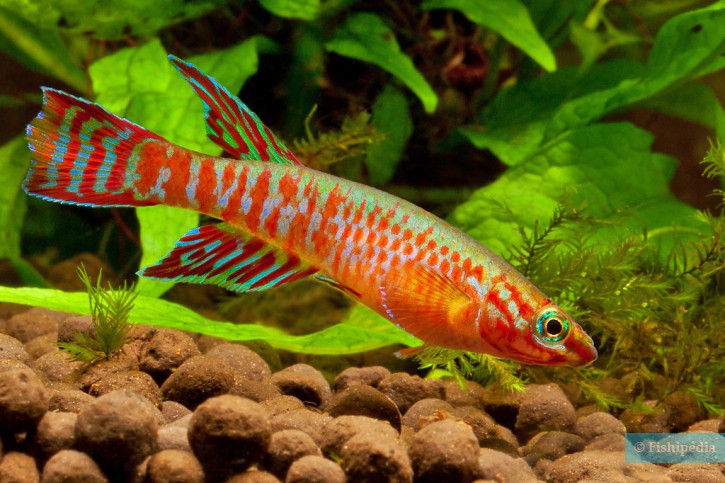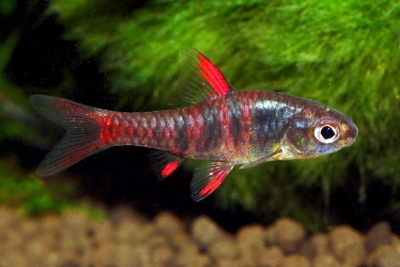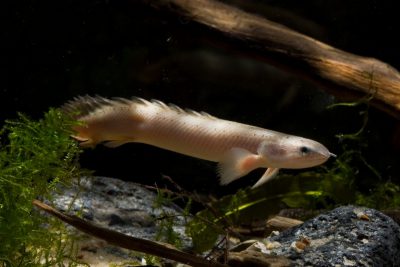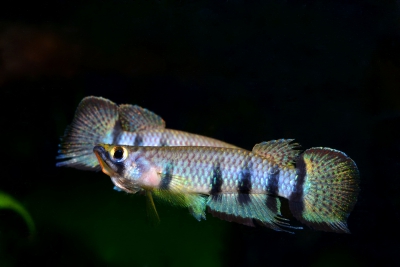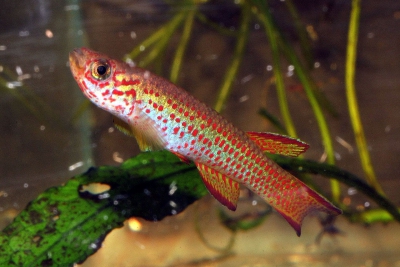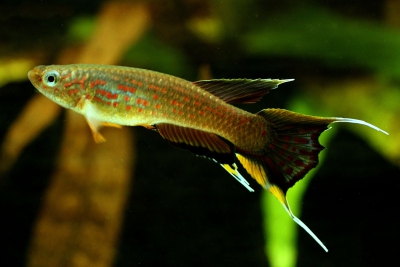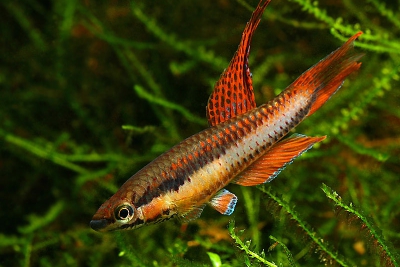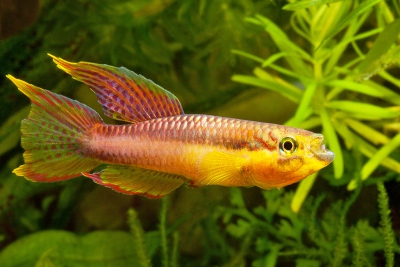red barred killi
| Scientific name | Aphyosemion elberti |
|---|---|
| Descriptor | Ahl |
| Year of description | 1924 |
| IUCN category (World) | LC |
| Family | Nothobranchiidae |
| Genus | Aphyosemion |
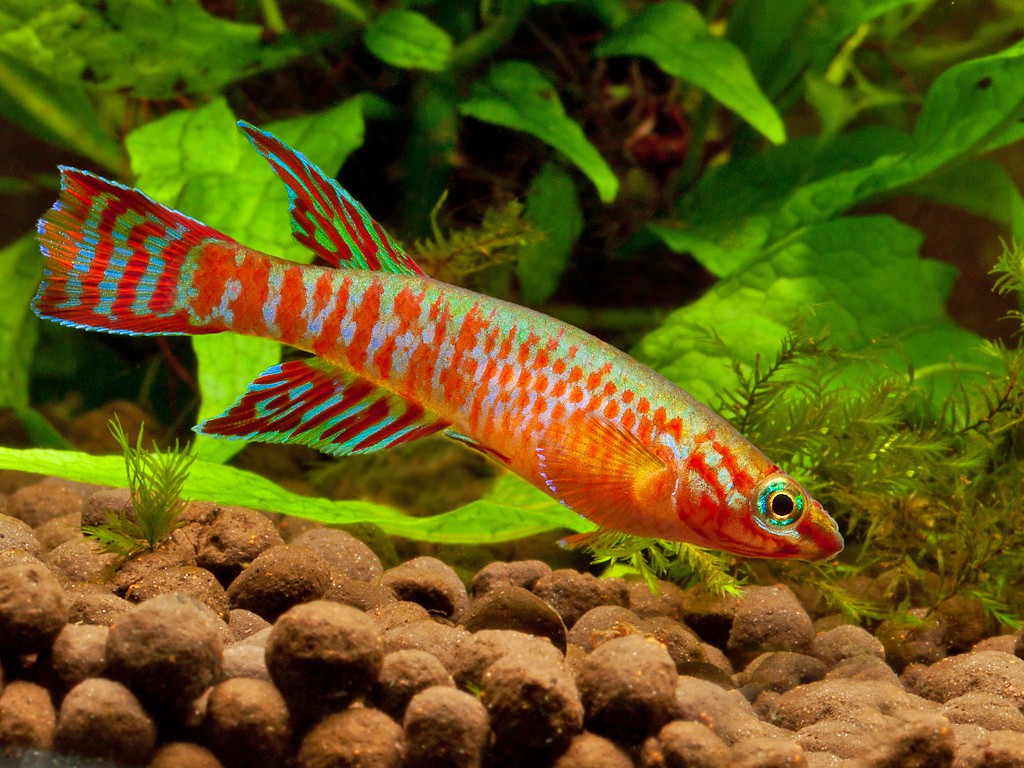

Introduction
Red barred killi is a killifish native to Central Africa.
Who is it?
Morphology
-
Type
-
Average size3 cm
-
Maximum size4 cm
-
Type
-
Average size3 cm
-
Maximum size4 cm
How to recognize This fish ?
Red barred killi is a slender species of medium size. The male has large unpaired fins with long tips. The dorsal fin has 10-12 rays; the anal fin 15-17 rays. The dorsal fin / anal fin position ratio = 1/6. There are 28-31 scales along the lateral line.
Coloration
Male: the color pattern varies among populations, but generally the back is olive green to brown and the flanks are iridescent blue to blue-green with numerous red spots. Anteriorly the spots are arranged in short horizontal bars while posteriorly they form irregular vertical bars with varying frequency and width depending on the populations. The dorsal and anal fins are usually light blue with red spots and stripes. There is a "yellow" phenotype with wide yellow to yellow-orange borders on these fins (sometimes absent in the dorsal fin). Generally, the caudal fin is also light blue, with red spots forming vertical bars in the center and two sub-marginal red horizontal bands (in yellow phenotypes, these upper and lower margins can be yellow).
Female: the body is light gray-brown with dark brown spots and transverse bars arranged in a pattern similar to that of males. The unpaired fins are mainly colorless, but the dorsal and anal fins can be pale yellow or orange with dark red-brown spots at the base. The caudal fin may have slight vertical lines.
Sexual dimorphism
The male Red barred killi is more colorful and larger than the female.
Behaviour & Life cycle
-
dietcarnivorous
-
Sociabilityliving in small groups
-
territorialYes
-
Way of livingdiurnal
The Red barred killi is a fish that lives in small scattered groups and naturally resides in vegetation. Males are territorial and may engage in small skirmishes with each other.
This fish is a micro-predator in its habitat, specializing in hunting small insects.
Reproduction
-
Reproductionovipare qui dépose ses Œufs dans la végétation
The Red barred killi is an oviparous fish that deposits its adhesive eggs, approximately 1.4 mm in diameter, in vegetation.
Harmless species
This species does not represent any particular threats to humans when encountered in its natural environment.
Origin and distribution
Geographic distribution & Conservation
Red barred killi frequents small streams, creeks, and marshes in humid grassy highland savannas. This species is found in the Mbam, upper Sanaga, and upper Mambéré, central and western Cameroon, and western Central African Republic. It is also present in the Benue (Niger Basin) and the Logone (Chad Basin, eastern Nigeria, and northern Cameroon).
Red barred killi has a wide distribution and appears to be of little concern. Therefore, this species is classified in the "least concern" category.
Conservation status of populations (IUCN)
What is its habitat?
Natural environment characteristics
-
Temperature20 - 24 °C
-
pH (acidity)5.5 - 7
-
gh (hardness)1 - 3
-
FlowSlow
Biotope presentation
The Red barred killi naturally inhabits streams and ponds in the tropical forest.
Species of the same biotope
To go further
Sources & Contributions
Participation & Validation
The Fishipedia team and specialist contributors are committed to providing high-quality content. However, although the information comes from scientific sources or testimonials from specialists, the cards may contain inaccuracies.

Didier Paugy
Translation
Translation done with the valuable contribution of our translators, who make this information available to a wider audience. We sincerely thank them for their commitment.
Scientific partners
Tags
Species of the same family
Same genus
Species of the same biotope
